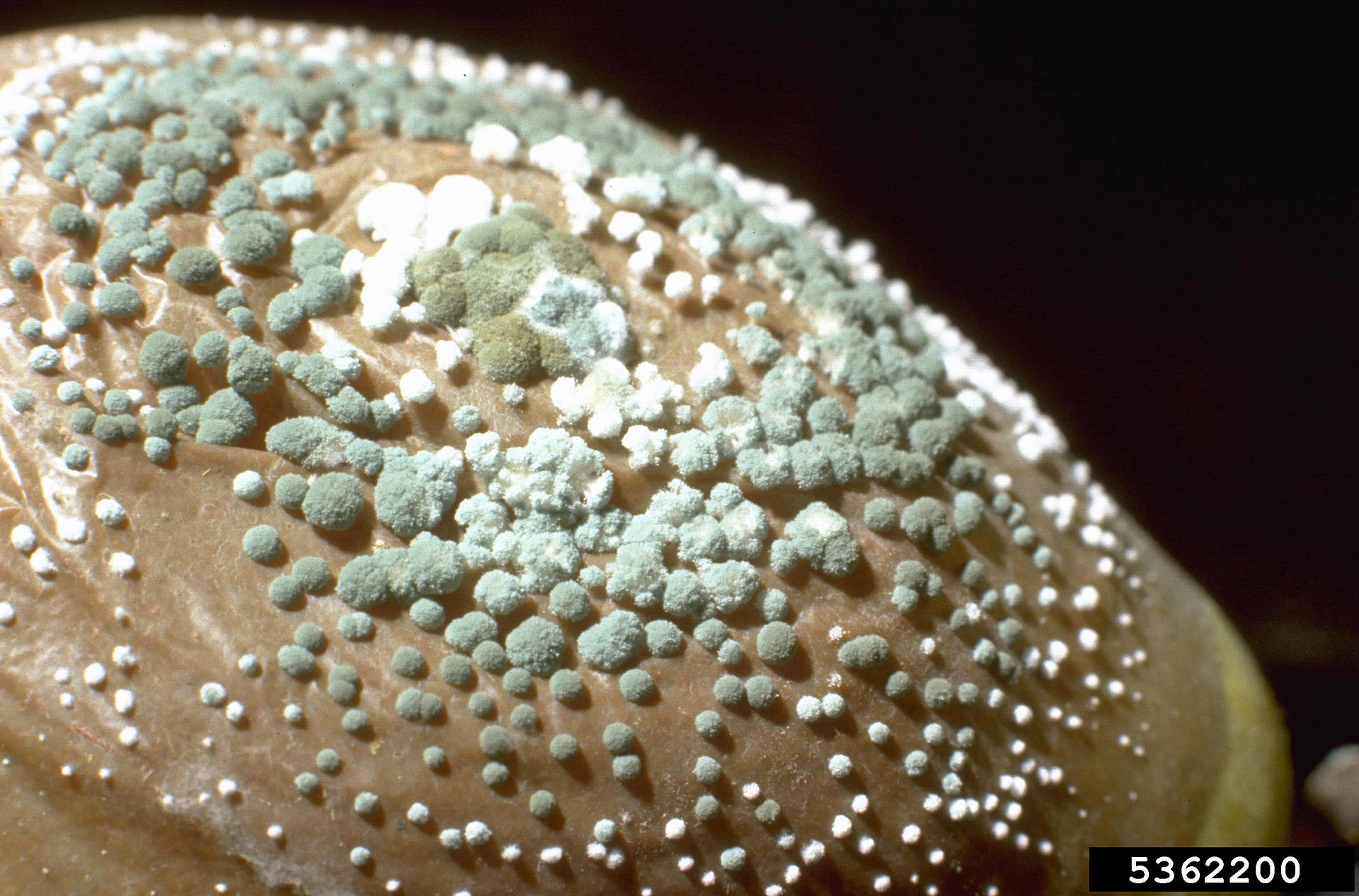Penicillium expansum phylome
 There is probably no better analogy for the notion of corruption than the idea of the rotten apple that spoils the barrel. The dark spots and mouldy tans that grow in decayed fruit can easily be transmitted to healthy pieces, turning them into new infectious focus and rendering them disgusting and even poisonous. Most of this infections are produced by ascomycetous filamentous fungi that float in the air in the form of tiny spores. The spoilage of fruits and vegetables after the harvest produces important economical loses in the food industry.
There is probably no better analogy for the notion of corruption than the idea of the rotten apple that spoils the barrel. The dark spots and mouldy tans that grow in decayed fruit can easily be transmitted to healthy pieces, turning them into new infectious focus and rendering them disgusting and even poisonous. Most of this infections are produced by ascomycetous filamentous fungi that float in the air in the form of tiny spores. The spoilage of fruits and vegetables after the harvest produces important economical loses in the food industry.
Furthermore, many of the fungal species that spoil food can produce secondary metabolites that are toxic for humans and thus an important health issue. Among this species is Penicillium expansum, a common rot in apples and several other fruit species and an avid producer of patulin and citrinin, mycotoxines with carcinogenic properties. P. expansum joins PhylomeDB as part of an effort to identify the evolution of its secondary metabolic capabilities. With this, there are five Penicillium species included in phylomeDB. The analyses of P. expansum genome and transcriptome show a genome reduction compared with other Penicillium species and discards the possible role of the main mycotoxins in the infection process itself. You can browse this phylome (PhylomeID279) and find more information in the associated publication:
Genome, Transcriptome, and Functional Analyses of Penicillium expansum Provide New Insights Into Secondary Metabolism and Pathogenicity. Ballester AR, Marcet-Houben M, Levin E, Sela N, Selma-Lázaro C, Carmona L, Wisniewski M, Droby S, González-Candelas L, Gabaldón T. Mol Plant Microbe Interact. 2015 Mar;28(3):232-48.
